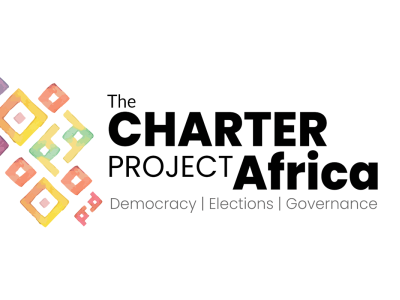
North Africa, hope in troubled times - Editorial
North Africa was the birthplace of the Arab uprisings in late 2010. This movement affected all the countries in the region, albeit to varying degrees. And while protestors asked in unison for deep political and economic changes, the various governments in North Africa responded differently to their demands. One critical question remains today: after eight years, what is left of the popular uprisings that shook North Africa? This issue of Great Insights will help us to answer this question. We invited a mix of authors from North Africa and Europe, with different areas of expertise, to share their reflections on a host of burning issues.
We begin by tackling a topic that was at the heart of the Arab revolts: unemployment. Despite high or medium human development across the region (see map), youth unemployment is still a persistent problem. Lilia Hachem Naas argues that the private sector can help to enhance economic growth and address unemployment in North Africa. Yet, much more needs to be done to boost jobs and productivity in the private sector.
The discussion on the role of the private sector relates to the issue of what socio-economic models are needed today to boost growth and development. The North African civil society has been advocating for a development model that responds to people’s aspirations for jobs and dignity. Despite severe backlash and a generally closing public space, civil society continues to push for change. The Tunisian non-governmental organisation SOLIDAR delves into the experience of civic activism in Tunisia, the only democracy of the Arab world where civil activism still stands as a beacon of hope. But even there, the challenges are not minor. Not a reason for pessimism – but vigilance is needed to continue moving forward.
At the wake of the ‘Arab Spring’, some countries have collapsed into conflict, as in the case of Libya. In this country, mediation among the conflicting factions was a central priority for activists. In her contribution, activist Zahra’ Langhi tells us how women in particular pushed through ample difficulties to restore peace in the country. However, a myriad of factors limit their work. Langhi calls for adequate measures to support their efforts. Touching on gender issues more widely, Langhi notes that women are more adversely affected by conflict, and that fostering decentralisation can have important implications for them.
The issue of decentralisation has gained prominence since 2011. Given the legacy of highly-centralised government structures, empowering local authorities is unlikely to be a smooth process. Tunisia’s burgeoning decentralisation process – and Morocco’s process of advanced regionalisation – offer some reasons for hope. In her contribution, Intissar Kherigi explores this unfolding process in Tunisia and the challenges that are likely to face it.
Amid these rapid developments, largely unforeseen challenges emerged, notably radicalisation. Thousands left their countries in the Maghreb to join the ranks of extremist groups. Now, many Jihadis are coming back, which is stirring a debate in North Africa about how to deal with these returnees. Fatim-Zohra El Malki explores how the governments in Morocco, Tunisia, and Algeria are investing in legal reform and prison rehabilitation schemes to mitigate the risks likely to arise as IS fighters return to society.
These concerns have brought significant uncertainty to North Africa. At the same time, the region has attracted the interest of old and new external actors. But what does this mean for the EU engagement in the region? In his article, James Moran looks deeper into answering this question. Despite ups and downs in the relationship, the EU continues to be the most important commercial partner of North Africa. Acknowledging this fact, Silvia Colombo argues that it is time to move beyond excessive bilateralism and securitisation in EU-North Africa relations and foster new forms of engagement.
Migration has for long been a key topic for rapprochement – and tensions – in the EU’s relations with its southern neighbours. While the EU wishes for stronger cooperation with these countries to reduce migrant flows, Maghreb countries are grappling with similar challenges, as Mehdi Lahlou argues. Morocco and Algeria are developing ways to address growing numbers of regular and irregular newcomers. In doing so they persevere in keeping their ties intact with both the EU and sub-Saharan countries.
For the EU, boosting investment is central to reducing migration from the source countries. However, external actor engagement could be limited by stalling reforms in the partner country. Looking at the case of Tunisia, ECDPM’s Bruce Byiers argues that the slow pace of reform in Tunisia poses challenges to its international partners. Given the political context, implementing wholesale reforms could be more difficult. Targeting small, incremental changes could turn out to be the right approach.
While North African countries strive to bolster their ties with the EU, they also started looking southwards. Morocco, for instance, applied for full membership of the Economic Community of West African States (ECOWAS) while, this year, Tunisia joined the Common Market for Eastern and Southern Africa (COMESA). Amira Abdel-Halim sheds light over the case of Egypt. Over the last few years, this state stepped up its engagement and diplomacy with sub-Saharan countries, motivated by economic and geopolitical interests.
In the aftermath of the Arab Spring, the domestic landscape in North Africa and how this region interacts with other partners has tremendously changed in ways that no one could have foreseen.
The region is lingering in uncertainty, but social movements and community initiatives for a better governance show that populations in North Africa still hold to their aspirations for a brighter future. These are undoubtedly troubled times, but hopefully North Africa will see the light at the end of the tunnel.
Guest editor
Tasnim Abderrahim, Policy Officer, Migration and African Institutions Programmes, ECDPM
Read the full magazine issue








